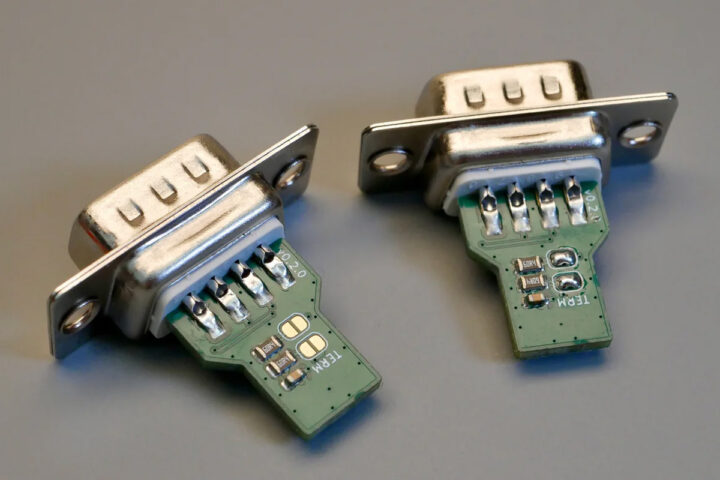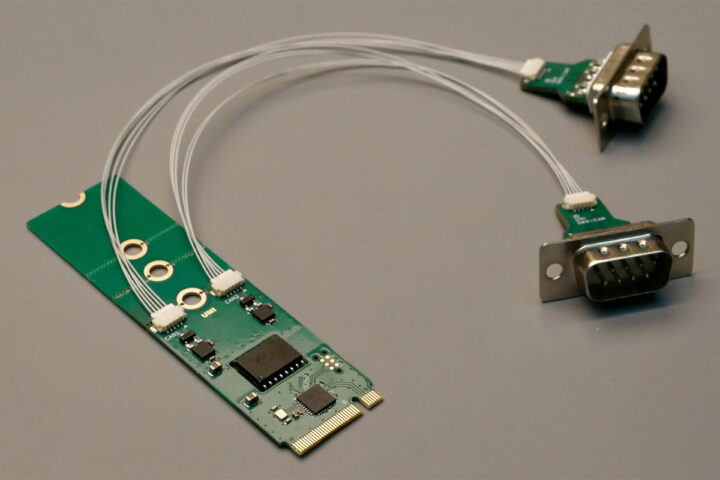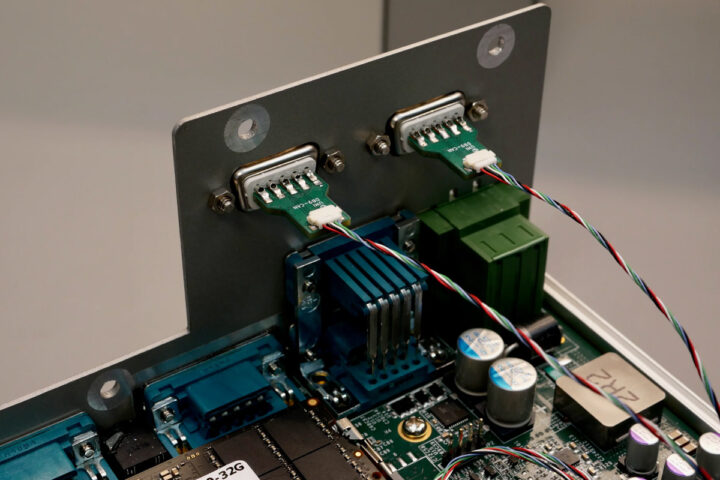Designed by Universal Machine Intelligence, the M.2 CAN FD adapter is an M.2 to CAN FD converter board that brings two high-speed CAN FD interfaces to projects requiring reliable high-speed communication. It is an M.2 B-key card with a slim form factor and a breakaway design that supports slot lengths like 2242, 2252, 2260, and 2280.
The adapter supports CAN FD and CAN 2.0B protocols with speeds up to 5Mbit/s and includes functional isolation between the host and CAN bus for additional safety. Additional features include a built-in network termination switch with split termination, ultra-low power consumption, and compatibility with 12V, 24V, and 48V systems. Designed for industrial environments, this adapter is ideal for applications like industrial monitoring and control, robotics, production line automation, hardware-in-the-loop testing, remote system access, data logging, and embedded computing.
M.2 CAN FD adapter specifications:
- CAN Bus
- CAN channel – Dual-channel CAN interfaces that are independent and isolated
- Connector – Two DB9 breakout connectors as standard (M12-A connectors as options)
- Baud Rate – 5Mbit/s Max
- Protocol Support – CAN2.0A and CAN2.0B protocols
- Misc – Breakaway design supporting 2242, 2252, 2260, and 2280 slot lengths
- Power
- Compatible with 12V, 24V, and 48V systems
- Ultra-low power consumption
- Dimensions – 51×30 mm (mini PCIe module)
- Operating Temperature – -40°C to +105°C
We have previously written about mini PCIe CAN Bus adapter cards, like the Waveshare 2-CH CAN MiniPCIe and the CAN-PCIeMiniHS/402, both of which have isolated CAN Bus functionality. However, this is the first time we’ve encountered a CAN Bus adapter in the M.2 format.
The firmware is based on the gs_usb protocol, which makes it computable with plug-and-play functionality with most modern Linux systems. Additionally, It supports features like one-shot transmission, FD mode (ISO 11898-1:2015), and bitrate switching, making it suitable for various CAN-based applications. However, it does not support loopback, listen-only, or triple-sampling modes, and certain features like FD Non-ISO mode, presumed ACK, and transceiver delay compensation are not available. It does support classic CAN length, but not cc-len8-dlc or len8_dlc which allows a DLC (data-length-code) of 9 to 15 bytes when the data payload in the frame is only 8 bytes. Firmware updates can be managed easily using the UMI command line tool or manually with utilities like dfu-util. More information about the software can be found in their GitHub repo.

You get Split termination on the DB9 connectors to reduce noise and improve signal integrity. It can be enabled by soldering the “TERM” pad on the breakout board as shown on the right side above.
The company provides documentation on how to configure and initialize a CAN (Controller Area Network) interface on Linux systems using systemd-networkd to automate its setup during system startup. The objective is to automatically configure a CAN interface (e.g., can0) with specific settings, such as bit rates and FD (Flexible Data-rate) mode so that it is ready for use by applications when the system boots.
The configuration file for the interface is stored at /etc/systemd/network/30-can.network:
|
1 2 3 4 5 6 7 |
[Match] OriginalName=can0 [CAN] FDMode=True BitRate=500K DataBitRate=5M |
You can test this using the following:
|
1 2 |
systemctl enable systemd-networkd systemctl restart systemd-networkd |
The documentation also explains how to configure and manage CAN (Controller Area Network) interfaces on Linux using the IP command. Here’s a clear breakdown of each section:
Basic Interface Configuration:
|
1 |
ip link set can0 up type can bitrate 125000 |
Using CAN FD (Flexible Data-rate):
|
1 |
ip link set can0 up type can bitrate 500000 dbitrate 4000000 fd on |
Displaying Interface Statistics:
|
1 |
ip -details -statistics link show can0 |
The M.2 CAN FD adapter costs $120.00 on Tindie, and the company also sells an mPCIe adapter for the same price.
Debashis Das is a technical content writer and embedded engineer with over five years of experience in the industry. With expertise in Embedded C, PCB Design, and SEO optimization, he effectively blends difficult technical topics with clear communication
Support CNX Software! Donate via cryptocurrencies, become a Patron on Patreon, or purchase goods on Amazon or Aliexpress







